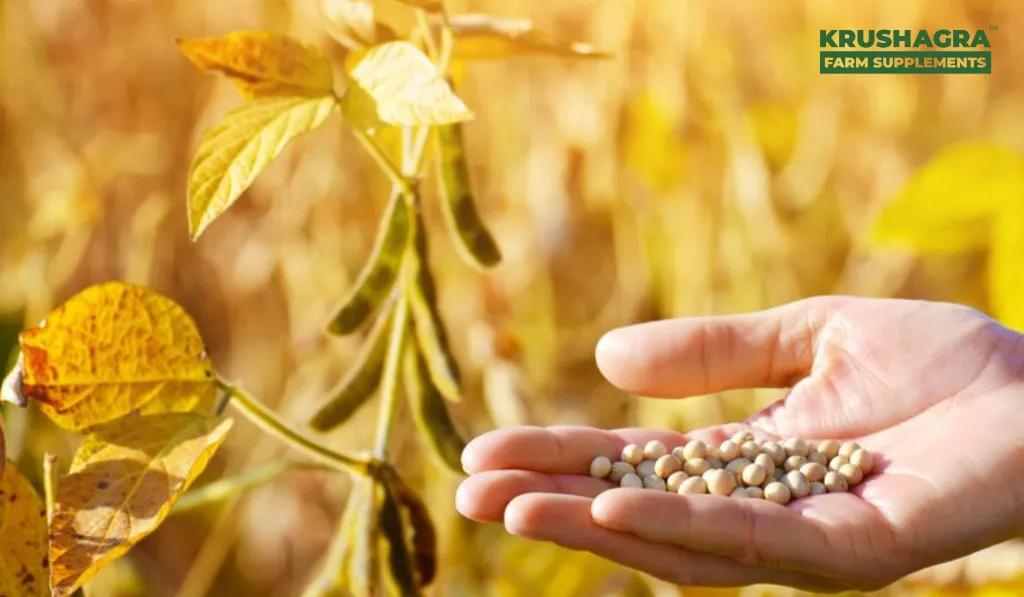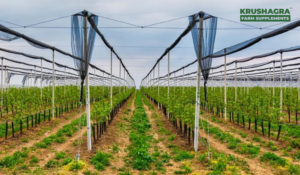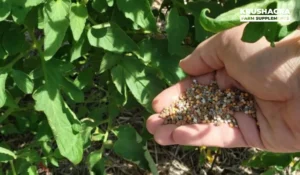What are Leguminous Crops?
Legumes are a group of plants belonging to the family Fabaceae. Leguminous crops have a unique symbiotic relationship with these bacteria, allowing them to convert atmospheric nitrogen into forms that plants can use. Some common examples include soybeans, peas and lentils. These crops are widely cultivated for a variety of purposes, including human consumption, animal feed, fodder production, and soil improvement through nitrogen fixation. Legumes are not only a valuable source of protein and other nutrients, but also contribute to soil fertility, crop rotation strategies and sustainable agricultural practices.
Usage of Biofetilizers for Leguminous Crops
Legumes play an important role in sustainable agriculture due to their ability to fix atmospheric nitrogen through symbiotic relationships with nitrogen-fixing bacteria called rhizobia. However, the use of organic fertilizers can further increase the productivity of legumes.
Organic fertilizers of biological origin contain beneficial microorganisms that promote plant growth and improve soil fertility. In this blog post, we examine the role of organic fertilizers in promoting growth and yield of plants, especially legumes. By harnessing the power of biofertilizers, farmers can achieve higher productivity, reduce their reliance on synthetic fertilizers, and promote greener farming approaches.
- Nitrogen Fixation:One of the main advantages of using biofertilizers for legumes is their ability to enhance nitrogen fixation. Organic fertilizers contain certain strains of rhizobia that form symbiotic relationships with legume roots and form nodules where nitrogen fixation takes place. These bacteria convert atmospheric nitrogen into a form readily available to plants, providing a natural and sustainable source of nitrogen for plant growth. This increases the chances of improved plant nutrition and increased legume yields.
- Phosphorus Solution:Organic fertilizers also play an important role in improving phosphorus availability in legumes. Certain microorganisms, such as phosphate-solubilizing bacteria and mycorrhizal fungi found in organic fertilizers, have the ability to solubilize phosphorus from insoluble forms in soil. This frees up the often limited reserves of phosphorus and makes it more accessible to plants. Improved phosphorus availability improves root development, nutrient uptake and overall plant growth, resulting in increased yields.
- Plant Growth Promoter:Organic fertilizers contain microorganisms that produce substances that promote plant growth, such as plant hormones, enzymes and organic acids. These substances stimulate root development, improve nutrient uptake and increase plant tolerance to environmental stress. It also contributes to the overall health and vitality of legumes, leading to increased biomass production, accelerated flowering and increased seed yield.
- Suppression of Disease:Certain organic fertilizers contain beneficial microorganisms that inhibit plant pathogens. These microorganisms can compete with pathogens to inhibit their growth and reduce disease incidence in legumes. Organic fertilizers contribute to improved plant growth and yields by promoting plant health and disease resistance.
- Soil Health and Sustainability:Organic fertilizers enrich the soil with beneficial microorganisms and improve soil health and fertility. These microorganisms improve soil structure, increase organic matter content and improve nutrient cycling. This improves soil fertility over time, reduces reliance on synthetic fertilizers, and minimizes the risk of contamination. Organic fertilizers support sustainable agricultural practices by promoting balanced ecosystems and mitigating the negative effects of conventional chemical fertilizers.
Conclusion:
Organic fertilizers have proven to be valuable tools for promoting plant growth and increasing yields in legumes. Biofertilizers contribute to sustainable agricultural practices through nitrogen fixation, phosphorus leaching, production of plant growth promoters, disease control, and overall improvement of soil health. By harnessing the power of these natural inputs, farmers can achieve higher productivity, reduce the use of synthetic fertilizers, and promote a greener approach to legume cultivation. Incorporating biofertilizers as an integral part of crop management strategies could lead to increased agricultural efficiency, improved food security and a more sustainable future for legume production.






